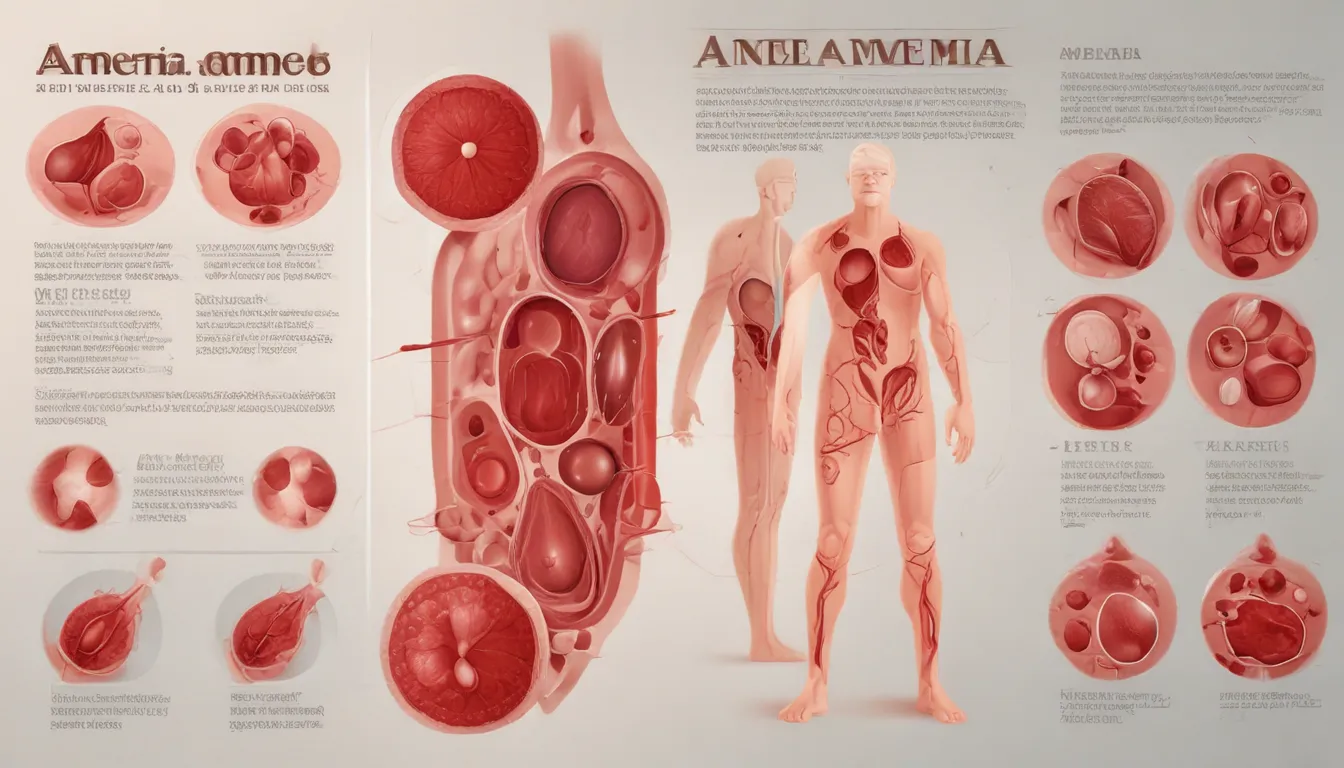The pictures in our articles might not always show exactly what the text is talking about. We use these images to make the article more interesting and eye-catching. They are there to add to the text, but not to replace it or show every detail.
Welcome to our comprehensive guide on understanding anemia, a common blood disorder affecting millions worldwide. This article aims to provide valuable insights into the various types of anemia, symptoms, causes, and available treatments. By delving into these essential aspects, we can gain a deeper understanding of how anemia impacts our health and well-being.
Exploring Different Types of Anemia
Anemia is not a singular condition but a group of disorders, with the most prevalent types being:
-
Iron-Deficiency Anemia: Caused by a lack of iron crucial for producing hemoglobin.
-
Vitamin Deficiency Anemia: Occurring due to inadequate intake of vitamins like B12 and folate necessary for red blood cell production.
-
Anemia of Chronic Disease: Linked to chronic conditions like cancer, kidney disease, and inflammatory factors affecting red blood cell production.
Recognizing Anemia Symptoms
Common symptoms of anemia include fatigue, weakness, pale skin, dizziness, and irregular heartbeat. However, the severity and presentation of symptoms can vary based on the underlying cause of anemia.
Uncovering Anemia Causes and Risk Factors
Anemia can arise from various factors such as poor diet, chronic diseases, genetic disorders, blood loss, and medication side effects. Certain risk factors like nutritional deficiencies, family history, age, and infections can increase the likelihood of developing anemia.
Special Considerations: Anemia in Specific Populations
-
Anemia in Pregnancy: Pregnant women are more susceptible to anemia due to increased blood volume demands. Proper prenatal care and iron supplementation are crucial during pregnancy.
-
Impact on Children: Anemia can adversely affect children's growth and cognitive development. Providing a nutrient-rich diet and seeking medical attention for symptoms is essential.
-
Anemia in Older Adults: Prevalent among older adults, anemia may be linked to health conditions or nutritional deficiencies. Regular screenings and management are vital for their well-being.
Managing Anemia and Lifestyle Considerations
Anemia can influence exercise performance due to reduced oxygen delivery. Athletes should monitor their iron levels for optimal performance. Individuals with hereditary anemias like sickle cell anemia require ongoing medical care. Global efforts are crucial to address anemia prevalence in low-income countries through improved nutrition and healthcare access.
Diagnosing and Treating Anemia
Healthcare professionals use blood tests like complete blood count (CBC) to diagnose anemia's presence and severity. Treatment approaches vary based on the underlying cause and may include iron supplements, dietary changes, blood transfusions, and addressing related health issues.
Proactive Steps: Preventing Anemia
Preventing anemia involves adopting a balanced diet rich in essential nutrients, regular check-ups, managing chronic diseases, and avoiding excessive blood loss. Collaboration between healthcare professionals is key to effectively managing anemia and promoting overall health.
Conclusion: Addressing Anemia for Better Health
In conclusion, anemia is a multifaceted condition that requires proper understanding, diagnosis, and management. By recognizing its types, symptoms, and treatment options, individuals and healthcare providers can collaborate to address anemia's impact and enhance overall well-being.
Frequently Asked Questions (FAQs)
Can anemia be cured?
The treatment and management of anemia depend on the underlying cause. While some types of anemia can be cured, ongoing care may be required for others.
Is anemia a serious condition?
The severity of anemia varies, with untreated cases having significant health implications. Seeking medical attention and following treatment recommendations is crucial.
Can anemia be prevented through diet alone?
A nutrient-rich diet can help prevent certain types of anemia, but comprehensive management may be needed for cases related to underlying health conditions.
Can anemia affect fertility?
Certain types of anemia, like iron deficiency anemia, can impact fertility. Seeking medical advice and treatment is important for individuals planning to conceive.
Can anemia recur after successful treatment?
Anemia may recur if underlying factors persist or if treatment does not effectively address the root cause. Regular monitoring and ongoing management are vital.
Trust in the accuracy and credibility of our content as we strive to provide valuable insights on anemia and other health-related topics. Join us on this educational journey towards better understanding and improved well-being.






